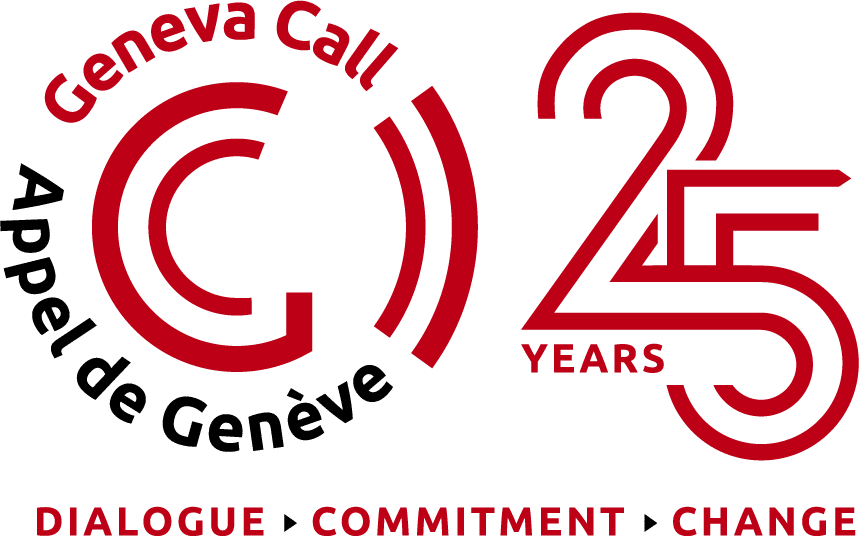Victims without borders: Senegal, Guinea Bissau, Gambia. More than 900 local leaders across three countries against landmines
17 October 2011
Victims without borders: Senegal, Guinea Bissau, Gambia
More than 900 local leaders across three countries against landmines
The Casamance region of Senegal is heavily affected by the scourge of anti-‐personnel (AP) landmines, as a result of the on-‐going conflict between the Senegalese army and the rebel Movement of the Democratic Forces of Casamance (MFDC). The impact of these weapons however goes beyond Senegal alone. In recent years, AP mines have also killed or maimed civilians in border areas with the Gambia and Guinea Bissau. In October 2010, Gambian authorities reported that MFDC combatants had been intercepted entering the Gambia with AP mines in their possession.
The Swiss-‐based humanitarian advocacy organization, Geneva Call, has been engaging the MFDC towards a total ban on AP mines since 2006, also encouraging the group to cooperate to clear mines and help prevent accidents to the civilian populations affected.
On 5 October 2011, Geneva Call concluded a series of community awareness sessions in Sibanor, Gambia, on the norms contained in the AP Mine Ban Conventioni. This was the last in a series of eleven, which began in 2009 as a cooperation between Geneva Call and Senegalese partner, l’Association pour la promotion rurale de l’arrondissement de Nyassia – Solidarité, Développement et Paix (APRAN-‐SDP).
Just as the landmines are having a cross-‐border effect on people’s lives, so the sessions were held in Casamanceii, in Guinea Bissau and now in the Gambia, reaching a total of 900 community and refugee leaders living in border areas. Many of the leaders and community representatives involved in the sessions are living in areas close to MFDC camps or have links with its combatants. A number of them will use the knowledge they have gained to try to convince MFDC combatants to renounce the use of AP mines, adding impact to Geneva Call’s direct advocacy towards the rebel group. In Sibanor, the session brought together some 130 representatives from local authorities, civil society organizations and refugee communities, and promoted awareness of the legal obligations of all parties regarding the AP Mine Ban Convention.
Speakers at the Sibanor event included the Gambian Ministry of Defence, the Senegalese National Mine Action Centre, the Senegalese Mine Victims’ Association and Nova Scotia – Gambia Association, a local NGO active in mine risk education. Saint Joseph Family Farm Centre, another local NGO, facilitated the organization of the event.
Finally Geneva Call welcomes the initiative of the Senegalese National Mine Action Centre, which found the sessions so useful that it organized six additional sessions in Casamance in 2011, partnering with the same local NGOs that work with Geneva Call.
i) The AP Mine Ban Convention prohibits the use of AP mines and requires signatory States to implement mine clearance, mine risk education and assistance to mine victims. The Gambia, Guinea Bissau and Senegal are all States parties to the Convention. The MFDC is being encouraged by Geneva Call to commit to norms similar to the AP Mine Ban Convention by signing the Deed of Commitment banning AP mines. For more information about the Deed of Commitment, please see http://genevacall.org
ii) A full report on the Casamance sessions is available at www.genevacall.org at the following link : http://genevacall.org/resources/conference-‐reports/f-‐conference-‐reports/2001-‐2010/2011_GC_AFRIQUE_MINE_SEN_RPT_FINAL_WEB.pdf
For further information : Tim Carstairs | Head of External Relations Appele de Genève | Geneva Call T. +41 22 879 10 50 F. +41 22 879 10 51 | tcarstairs@genevacall.org www.genevacall.org
